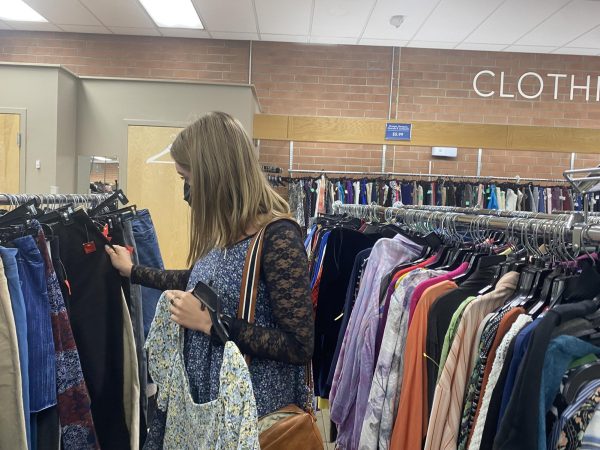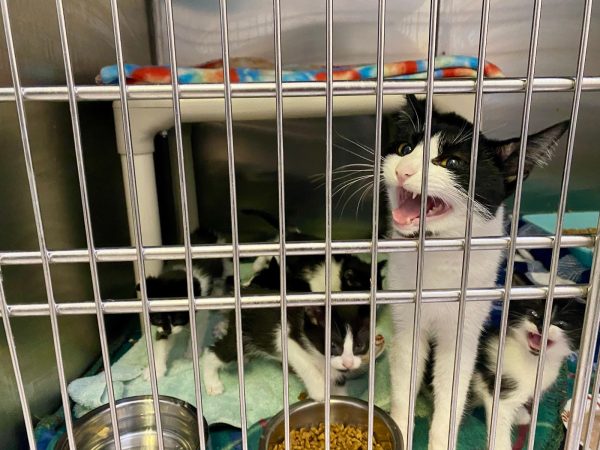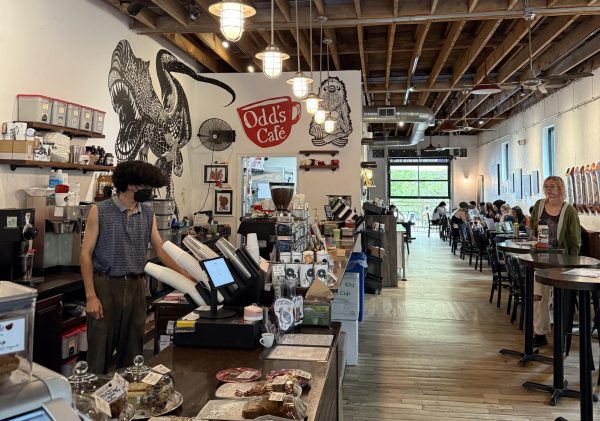Therapy in progress: therapists of color share experiences working in the mental health field
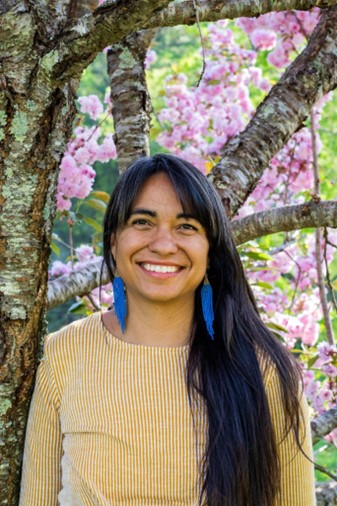
Bianca Gragg operates her own private practice called Semillas Counseling.
As a child, Bianca Gragg did not want to be a dark brown hairy girl.
“I wanted to be like everybody else,” she said. “I didn’t want to be that, but that is what I was.”
Gragg provides mental health services to others who identify as racially marginalized and offers spaces for them to talk about their identity, racial and colonial trauma. Topics that some people of color avoid sharing with therapists who do not identify as racially marginalized.
“None of my clients actually share my identity. I identify as a Chicana woman. None of them have that same identity, but all of my clients have some kind of mixed race identity or a different racial identity than white,” she said.
Although Gragg identifies differently than her clients, they share similarities in their experiences.
“I’ve noticed a lot of people reach out to me because there’s something I put on my website or in my profile where they are like, ‘it feels like you would understand something about my experience,’” she said.
Prior to opening a private practice, Gragg worked with children as a school therapist, a youth programmer for the YMCA and as a program instructor and youth development specialist for children’s camps in Arizona.
“Children have a lot of wisdom and knowledge, and as we get older we become programmed to think the older you are the smarter you are. But children are really in tune with what they actually need and deserve,” she said.
Only after becoming a mother did Gragg learn to accept her identity.
“In the last seven to eight years, I’m actually, like, ‘oh I love being a brown hairy woman. I love how I am able to show up that way in the world,” she said.
When it comes to other aspects of identity, as someone with ancestry from Mexico, Spain and Germany, understanding how her different ancestry impacts each other also holds importance.
“I have shame related to ancestry that has been oppressive toward another part of my ancestry that was oppressed,” she said.
Gragg’s relationship with her identity is still ongoing, but as of late, she holds more compassion for herself.
“More and more of us are going to be all those different things,” she said.
As a mother of multiracial children, Gragg wants her kids to hold the same compassion toward themselves.
“I want them to love who they are, I don’t want them to feel ashamed for just honoring their own humanity and the humanity of others,” she said.
Gragg also helped co-found the Colorful Pages Coalition, an organization aiming to add more books with characters of color to local schools, after struggling to connect with her mom friend group.
“My mom friend group was mostly white and me and my kids are not. It was not just visibly clear to me at that time, but culturally clear. I was having a hard time connecting,” she said.
During a meeting with her friend Jeannie and a new acquaintance, Marisol Jiménez, the topic of motherhood and their experiences arose.
“It was the first time where I felt like I didn’t have to explain myself and what I had been feeling and experiencing as a brown mother. And not being questioned by it,” she said. “Here was this seasoned mother, Latina, who was talking about what she had been going through and what she was experiencing.”
Soon the conversation turned to Gragg and Jiménez’s experience with the lack of representation within children’s books and the idea for the Colorful Pages Coalition formed.
“My friend Marisol said something like, ‘well just look at the books in schools, what’s in the schools? There are no brown or Black children in the books for our kids. We are not seeing ourselves anywhere,’” she said.
In her own life, Gragg already read books with characters of color to her kids and talked to them about differences in skin tones, but when speaking to others some avoided racial topics.
“It’s not scary, it’s not taboo. We just wanted to normalize that,” she said. “It’s okay to talk about this stuff it’s not bad to talk about being Black and being brown. We should be celebrating that we have Black friends and brown friends and Asian friends.”
***
During the COVID-19 pandemic in 2020, Ashley Butawan, who uses she/they pronouns, faced an ultimatum after telling their supervisor about their dissatisfaction.
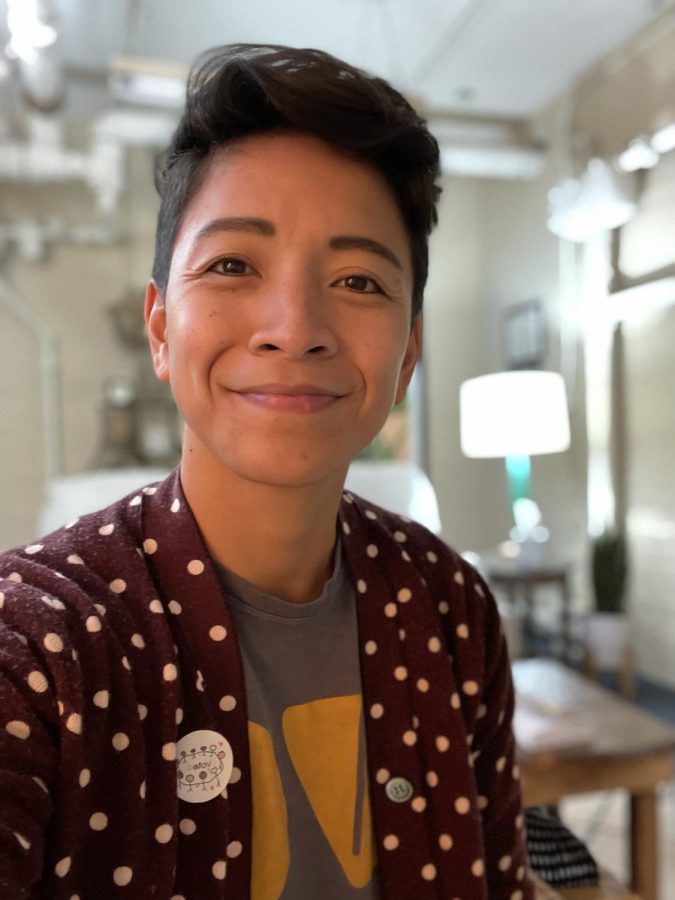
“I was like, ‘I’m struggling, this is really difficult for me.’ And my supervisor was very much like, ‘If you don’t get it together, maybe we’ll need to find somebody else,’” she said. “I just stuffed it all down, I put my head down until I quit. That was the only way for me.”
Although Butawan has worked as a licensed mental health counselor and addiction specialist since 2016, they still get surprised when they encounter other therapists of color.
“Even if there are more Black or brown therapists coming into the community, there’s exponentially more white therapists coming into the community, so it just kind of gets drowned out in a way,” she said.
As an openly queer and Asian-identifying therapist, Butawan said despite opening their private practice during the COVID-19 pandemic getting clients came relatively easy.
“When people seek me out it’s usually for one of those reasons and so I filled up very quickly,” she said.
Butawan said some clients of color are unable to tell white therapists about their experiences with racism, microaggressions or white supremacy.
“They don’t feel heard or they feel they have been invalidated by white therapists. Which they have had and probably unintentionally by these therapists,” she said.
Before opening their own private practice, Butawan worked for different mental health agencies in Asheville for four years. During their time working in agencies, they began noticing issues with the way workers were treated.
“Their whole idea is, yes, we need to make money and maintain a business in order to provide these services and yet at what cost? The cost tends to be the mental health of your workers and their own satisfaction with their lives outside of work,” she said. “The expectation to go and sacrifice your boundaries for the sake of the program or for your clients is so hypocritical.”
Even as a therapist, Butawan said their identity and socialization as an Asian person affected them while working at different agencies.
“The expectation, the unspoken implicit expectation is that I have to acquiesce in such a way to make white people more comfortable,” she said. “Even if I do not think I have been exploited more I’m just aware of that being a thing I carried into the workplace, and that my white supervisors were not aware of.”
***
Anterior Wynn, 25, grew up in Brevard, an area with a small number of people of color.
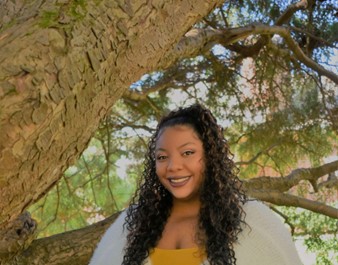
“I didn’t have anybody that looked like me represented in the teachers that I had. I didn’t have anybody that looked like me represented in different spaces outside of strictly my family,” she said.
After getting out of high school Wynn faced a bigger identity crisis.
“I realized, even more, how much of an identity crisis I was having within myself trying to put these different masks on to fit into white spaces that didn’t really have a spot for me to fit in,” she said.
In college, Wynn’s professors failed to relate with or identify with people of color.
“None of them had experiences or taught you how to work with people of color,” she said. “Now I pride myself on being very well versed trying to work with people and meet them where they are because as people of color you know it’s hard for us to feel safe and feel seen.”
Substance abuse hits close to Wynn as her mother and other family members have struggled with addiction. Since becoming a certified substance abuse and addiction counselor, she has been able to help her family get access to needed resources.
“They didn’t have the tools to be successful in their recovery because they just were not allotted the resources. They didn’t have the opportunity, they didn’t have people to connect them with those services,” she said.
For Wynn, representation plays an important role in her decision to become a therapist. Further in her career, she hopes to become a clinical director doing training on racial acceptance, diversity and inclusion.
“I haven’t always been accepted by my peers and I have not always felt very safe identifying with the needs of the people who I serve,” she said.
Wynn also recently switched jobs to work at Oasis Recovery Center due to the clinical director and vice president being women of color.
“I had quite some significant challenges just being in primarily white spaces. I am always the only Black counselor wherever I work and so that’s just the challenge in itself,” she said.
During her first job as a certified substance abuse counselor, Wynn’s supervisor at the time accidentally mass-emailed everyone about their intentions to get her fired.
“She was aiming to get me fired because I didn’t fit in the space with people. I was too loud. She made a comment about my big lips. A lot of microaggressions,” she said.
Despite that situation and other racially based incidents, Wynn said finding confidence and security within herself has helped her with dealing with those situations. Adding on, she said organizations like Clinicians of Color, an organization that aims to help therapists of color grow or start a private practice, offer safe spaces for therapists of color.
“Oftentimes in these spaces, there is such a pressure to conform to other people that you just continue to make yourself uncomfortable,” she said. “Pushing that narrative out of my mind and stepping into my own identity and being happy and being confident in who I am as a Black woman, as a gay Black woman, it really changed my perspective and helped me navigate my own insecurities so I can be a better clinician to the people I serve.”

















